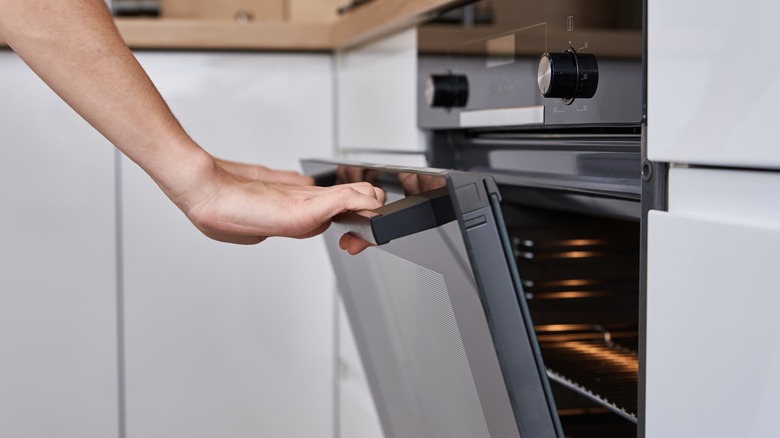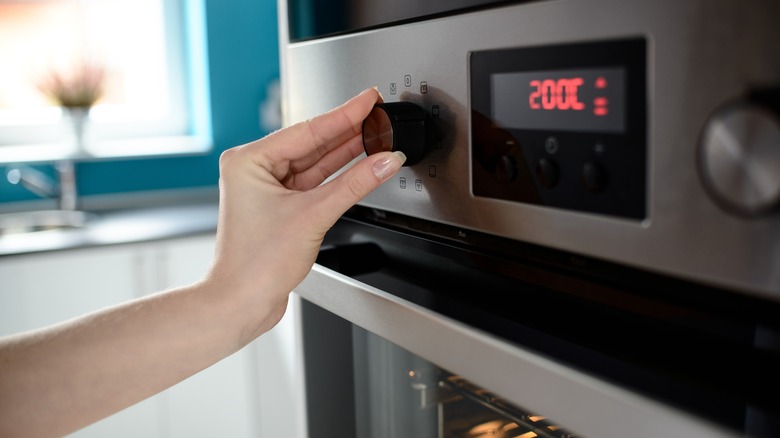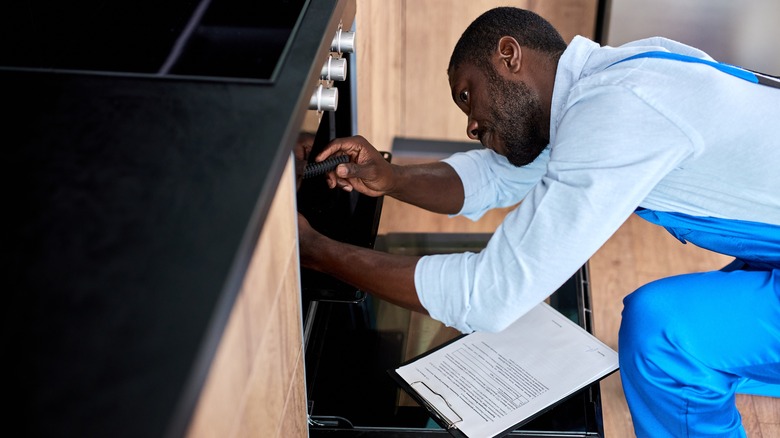An Expert Explains Why Your Oven Isn't Heating Up
While your oven should typically last between 13 and 15 years, you may discover that it starts having issues long before its time is up. Perhaps your food isn't cooking evenly anymore, or maybe the oven has been excessively hot and started overcooking your meals. Another issue you may be facing is your oven not heating up enough. Jeff Russell, founder of Diamond Appliance Repairs of O'Fallon, MO, knows that this issue is quite serious, as families often use their oven every day. In an exclusive interview with House Digest, he acknowledges, "A malfunctioning oven can ruin meals or leave you without hot food altogether."
If this is the problem you're currently facing, Russell sympathizes with your plight. "Are you having issues with your oven not heating up?" he asks. "You're certainly not alone. It's one of the most common issues appliance repair technicians encounter." The good news is that oftentimes the problem can be easily fixed. Russel continues, "As long as you pay attention to signs of trouble early on and take steps to keep it in good condition all year-round (such as scheduling regular inspections with a qualified appliance repair technician), you won't have much trouble keeping your oven hot."
Common causes
According to Russell, "There are several common causes for why your oven isn't heating up." The first is that, no matter what type of oven you have, "the thermostat could be broken or set on a low setting which won't heat the oven up enough for proper cooking temperatures." Other issues are specific to either electric or gas ovens. Russell says, "If your oven is powered by gas, there could be an issue with its ignition system or burner pilot lights that prevent it from getting hot enough for use in cooking food safely at high temperatures."
On the other hand, if you have an electric model, he says, "The heating element might be faulty, broken, or disconnected from its power source." This heating element, which may be a coil or semi-circle device, is typically found at the bottom of the oven and is usually easy to replace. Another common issue with electric ovens is faulty wiring; this issue will make an appliance malfunction by hindering the path of electricity as it tries to reach the heating element. "Corroded connections in the wiring can also disrupt the electrical flow and prevent proper heating of your oven," adds Russell.
Diagnosing the problem
Once you've noticed that your oven isn't heating up properly, if you have an electric model, you may want to pull out the appliance and make sure it's properly plugged into the outlet. Provided everything looks correct back there, you'll need to take further action. Russell warns, "While many of these problems may seem easy enough to fix yourself, remember that it's always best to get professional help when dealing with electrical appliances such as ovens — even if you think you know what's wrong." The main reason for this is the inherent risks of making the issue worse. "If done incorrectly, repairing an oven can cause a fire hazard due to over-heating or faulty wiring connections — both of which can start a potentially dangerous blaze if left unchecked."
When the professional arrives at your house, they'll start by diagnosing the problem. According to Russell, "This includes checking things like the temperature regulator, heating element, and wiring. If the problem isn't obvious, they may even need to disassemble parts of your oven so they can properly inspect it for any hidden damage or faults."


